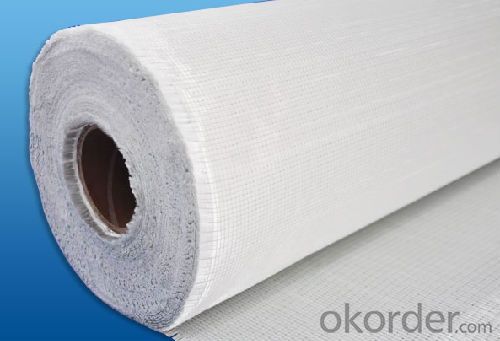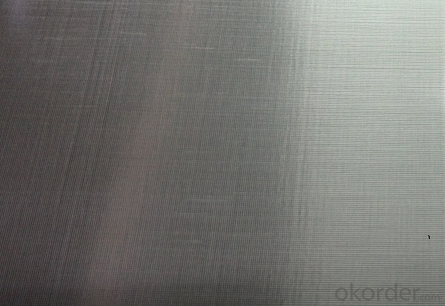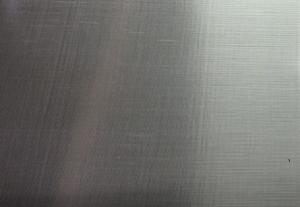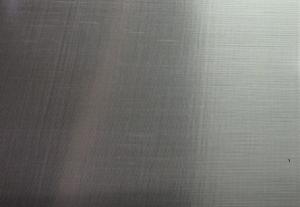Fiberglass Unidirectional fabric 600gsm 1000mm
- Loading Port:
- Shanghai
- Payment Terms:
- TT or LC
- Min Order Qty:
- 5000 kg
- Supply Capability:
- 50000 kg/month
OKorder Service Pledge
OKorder Financial Service
You Might Also Like
Structure of Fiberglass Multiaxial Fabric-UD Description:
Fiberglass unidirectional fabric is the product combining the roving in certain angel of 0 ℃ or 90 ℃ with polyester yarn.
Main Features of the Fiberglass Multiaxial Fabric-UD:
• Fiber straight arranged, fiber strength be ultimately used.
• No powder or emulsion, sink quickly, easy to operate.
• Easy to design, high strength in one direction.
Mainly be used as reinforced materials in the composite material industry.
• Matrix: unsaturated polyester resin, vinyl ester resin, epoxy resin and phenolic resin etc.
• Craft: winding, pultrusion, hand lay up, etc.
• Ultimate products: storage tank, tube, pultruded profiles, FRP body of boat, etc.
Fiberglass Multiaxial Fabric-UD Images:


Unidirectional Specification:
specifications | Fibre type | 0°Roving | 90°Roving | Overall weight | Width |
(g/㎡) | (g/㎡) | (g/㎡) | (mm) | ||
EDW227 | E-Glass | — | 227 | 227 | 1524 |
EDW350 | E-Glass | — | 350 | 350 | 1524 |
EDW450 | E-Glass | — | 450 | 450 | 1524 |
EDJ600 | E-Glass | 480 | 120 | 600 | 1524 |
EDJ800 | E-Glass | 600 | 200 | 800 | 1524 |
EDJ1000 | E-Glass | 600 | 400 | 1000 | 1524 |
Packaging: Wrapped in PVC and placed within a cardboard carton. | |||||
FAQ of Chopped strand mat
1. Why Choose us?
CNBM is a stated own company, provide the guarantee for the best quality, best service and safety business.
2. How will we guarantee the quality?
a, ISO 9001-2008 quality control system;
b, Strict and regular quality control in production;
c, Inspeciation when loading into container before shippment;
d, Sample stock for one year for quality tracing and record.
3. What is your MOQ?
Our MOQ is one pallet.
4. Can you provide sample?
Yes, samples are in stock. we can offer free sample for you.
5. Payment terms?
We can accept L/C, T/T etc.
- Q:Is fiberglass mat tissue resistant to mold growth?
- Indeed, mold growth is effectively resisted by fiberglass mat tissue. The composition of fiberglass involves the interlacing of tightly woven glass fibers, yielding a substance highly impervious to moisture and mold. Moreover, fiberglass possesses a non-porous nature, signifying its inability to absorb water, thereby further deterring the proliferation of mold. Consequently, fiberglass mat tissue emerges as an optimal selection for circumstances necessitating mold resistance, such as insulation, wallboards, and various construction materials.
- Q:Can fiberglass mat tissue be used for swimming pool construction?
- Certainly, fiberglass mat tissue is suitable for the construction of swimming pools. This versatile material is widely utilized in the construction sector due to its robustness, durability, and ability to withstand water and chemicals. Its primary purpose is to reinforce the swimming pool shells, thereby enhancing their structural integrity and preventing any potential issues like cracking or leakage. Moreover, fiberglass mat tissue is renowned for being lightweight and easy to manipulate, which contributes to its popularity among pool builders. Nonetheless, it is crucial to ensure that the fiberglass mat tissue employed in swimming pool construction adheres to the required standards and regulations in order to guarantee the pool's safety and longevity.
- Q:What is the expected lifespan of fiberglass mat tissue in residential applications?
- The expected lifespan of fiberglass mat tissue in residential applications can vary depending on various factors such as the quality of the material, installation techniques, climate conditions, and maintenance. However, on average, fiberglass mat tissue can last for 20 to 30 years in residential applications when properly installed and maintained.
- Q:Is fiberglass mat tissue resistant to solvents?
- Yes, fiberglass mat tissue is resistant to solvents. Fiberglass mat tissue is made from woven fiberglass fibers that are then coated with a binder. This binder provides a protective layer that makes the tissue resistant to solvents. Solvents are typically used to dissolve, thin, or clean materials, and they can potentially deteriorate or damage certain materials. However, fiberglass mat tissue is specifically designed to withstand the effects of solvents, making it a reliable choice for applications where exposure to solvents is expected.
- Q:Can fiberglass mat tissue be used for ceiling insulation?
- No, fiberglass mat tissue is not typically used for ceiling insulation. It is a material commonly used in the construction of composite materials, reinforcing plastic products, and for soundproofing purposes. Ceiling insulation is typically done using materials specifically designed for thermal and acoustic insulation, such as fiberglass batts, cellulose, or foam insulation boards.
- Q:Can fiberglass mat tissue be used for insulation in cryogenic applications?
- Yes, fiberglass mat tissue can be used for insulation in cryogenic applications. It provides excellent thermal insulation properties and can withstand extremely low temperatures commonly found in cryogenic environments.
- Q:Can fiberglass mat tissue be used in marine applications?
- Yes, fiberglass mat tissue can be used in marine applications. Fiberglass mat tissue is a lightweight and flexible material that is commonly used in boat building and repair. It provides excellent strength and durability, making it suitable for marine environments where the material is exposed to water, salt, and other harsh conditions. Fiberglass mat tissue is often used as a reinforcement layer in the construction of boat hulls, decks, and other structural components. It helps to add strength and stiffness to the composite materials used in marine applications, enhancing their overall performance and longevity. Additionally, fiberglass mat tissue is resistant to corrosion and has good water resistance properties, making it well-suited for marine applications.
- Q:Can fiberglass mat tissue be used for reinforcing concrete structures?
- Yes, fiberglass mat tissue can be used for reinforcing concrete structures. It provides additional strength and durability to the concrete, enhancing its resistance to cracking and improving its overall structural integrity.
- Q:How is fiberglass mat tissue used in the production of storage containers?
- The unique properties and benefits of fiberglass mat tissue make it a common choice in the production of storage containers. This thin layer of non-woven glass fibers offers excellent strength and durability, reinforcing the structure of the containers and ensuring they can withstand heavy loads without deforming. In addition to its strength, fiberglass mat tissue is highly resistant to corrosion, moisture, and chemicals. This makes it perfect for storage containers that may be exposed to harsh environments or contain corrosive substances. By acting as a protective barrier, the fiberglass mat tissue prevents any potential damage or degradation to the container. Furthermore, fiberglass mat tissue is lightweight, making it easier and more cost-effective to transport and handle during production. It also helps reduce the overall weight of the storage container, allowing for increased payload capacity and more efficient storage and transportation. During the molding process, the fiberglass mat tissue is typically applied to the surface of the container. It is often impregnated with a resin or adhesive, which, when cured, creates a strong bond with the container, enhancing its structural integrity. Overall, fiberglass mat tissue is crucial for the production of high-quality and long-lasting storage containers. Its strength, durability, corrosion resistance, and weight reduction capabilities make it the preferred choice for manufacturers in this industry.
- Q:Can fiberglass mat tissue be used for making lightweight flooring?
- Yes, fiberglass mat tissue can be used for making lightweight flooring. Fiberglass mat tissue is a material that is commonly used in construction and manufacturing industries for its strength, durability, and lightweight properties. It is made by bonding fine fiberglass strands together with a binder, which results in a thin, flexible, and lightweight material. When used in flooring applications, fiberglass mat tissue can provide several advantages. Firstly, its lightweight nature makes it easier to handle and install, reducing the overall weight of the flooring system. This can be particularly beneficial in applications where weight is a concern, such as in aircraft or mobile homes. Additionally, fiberglass mat tissue is known for its excellent strength-to-weight ratio, making it a suitable material for creating lightweight yet strong flooring. It can provide reinforcement and improve the structural integrity of the flooring, making it more resistant to cracking, warping, or other forms of damage. Furthermore, fiberglass mat tissue is resistant to moisture, chemicals, and fire, making it a suitable choice for areas where these factors are present, such as bathrooms, kitchens, or industrial settings. It also offers good insulation properties, which can help in maintaining a comfortable indoor environment and reducing energy consumption. Overall, fiberglass mat tissue can be an excellent choice for making lightweight flooring due to its strength, durability, moisture resistance, and insulation properties. However, it is important to consider other factors such as the specific requirements of the flooring application, the load-bearing capacity, and the necessary certifications or standards before finalizing the use of fiberglass mat tissue in a flooring project.
1. Manufacturer Overview |
|
|---|---|
| Location | |
| Year Established | |
| Annual Output Value | |
| Main Markets | |
| Company Certifications | |
2. Manufacturer Certificates |
|
|---|---|
| a) Certification Name | |
| Range | |
| Reference | |
| Validity Period | |
3. Manufacturer Capability |
|
|---|---|
| a)Trade Capacity | |
| Nearest Port | |
| Export Percentage | |
| No.of Employees in Trade Department | |
| Language Spoken: | |
| b)Factory Information | |
| Factory Size: | |
| No. of Production Lines | |
| Contract Manufacturing | |
| Product Price Range | |
Send your message to us
Fiberglass Unidirectional fabric 600gsm 1000mm
- Loading Port:
- Shanghai
- Payment Terms:
- TT or LC
- Min Order Qty:
- 5000 kg
- Supply Capability:
- 50000 kg/month
OKorder Service Pledge
OKorder Financial Service
Similar products
New products
Hot products
Related keywords




























